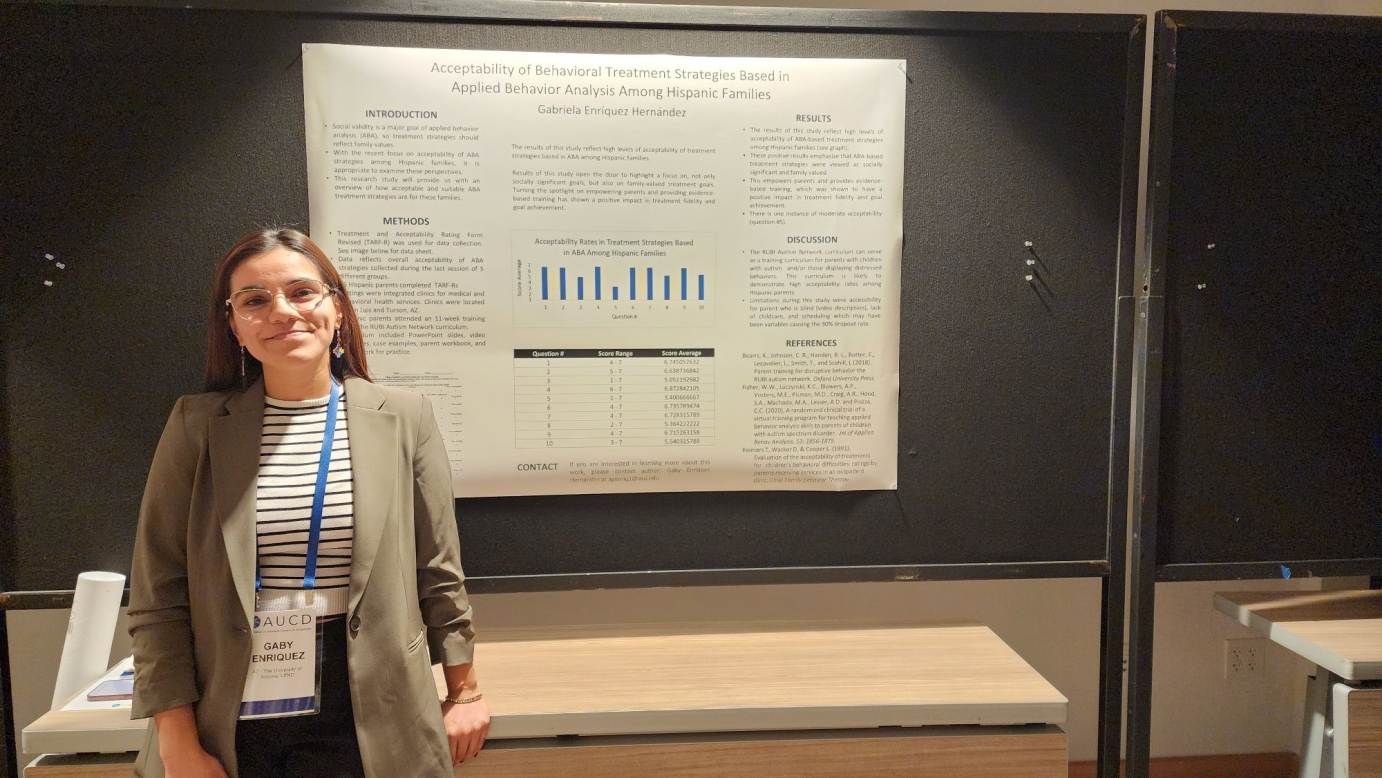ArizonaLEND Alum (2022-2023), Gabriela Enríquez Hernández, BCBA, has been doing incredible work in Southern Arizona with Hispanic families whose children have behavioral health needs. Her current research is looking at the treatment acceptability of applied behavior analysis (ABA) treatment strategies among Hispanic families. Gabriela presented this research at the AIR-P Research Day of the AUCD conference earlier this month.
Pictured below is Gabriela with her poster at the poster session for AIR-P Research Day.

Gabriela is a bicultural woman and Board-Certified Behavioral Analyst who was born and raised in Sonora Mexico.
The overall purpose of her study is to look at how acceptable and suitable ABA treatment strategies are for Hispanic families. To assess this every parent/caregiver that completed the 11-week training lead by Gabriela was given a Treatment and Acceptability Rating Form Revised (TARF-R).
“This research study provides us an overview of how acceptable, how suitable ABA strategies are for Hispanic families…I strongly believe that this type of data should be gathered for not only parents but also people on the spectrum or other neurodevelopmental disabilities,” said Gabriela.
The 11-week training utilized the Research Units in Behavioral Intervention (RUBI) Autism Network Curriculum. Included in the curriculum are PowerPoint slides, video vignettes, case examples, parent workbook, and homework for practice of behavioral treatment techniques. The curriculum is designed for parents with children who have autism and/or those displaying distressed behaviors. The parent training was provided at integrated clinics for medical and behavioral health services in both San Luis and Tucson, AZ.
“Social validity is a major goal of applied behavior analysis,” said Gabriela. The data she has collected from the TARF-Rs shows on average that the ABA treatment strategies are acceptable among Hispanic families.
Gabriela stated, “I believe that as therapists and providers we should make sure that the families that we serve feel confident in also implementing the strategies that we’re teaching them. Providing evidence-based training has shown a positive impact in treatment fidelity and goal achievement.”

